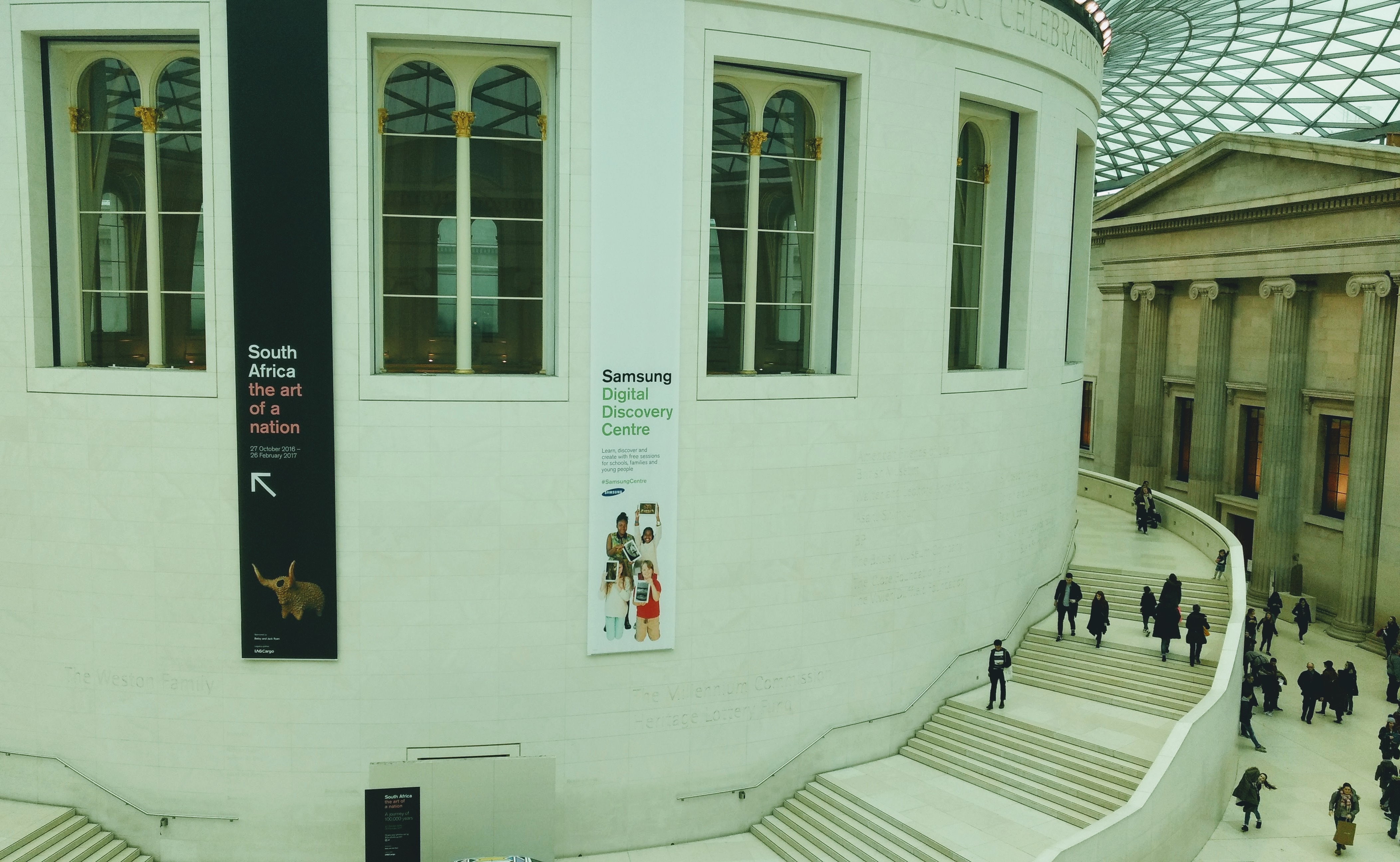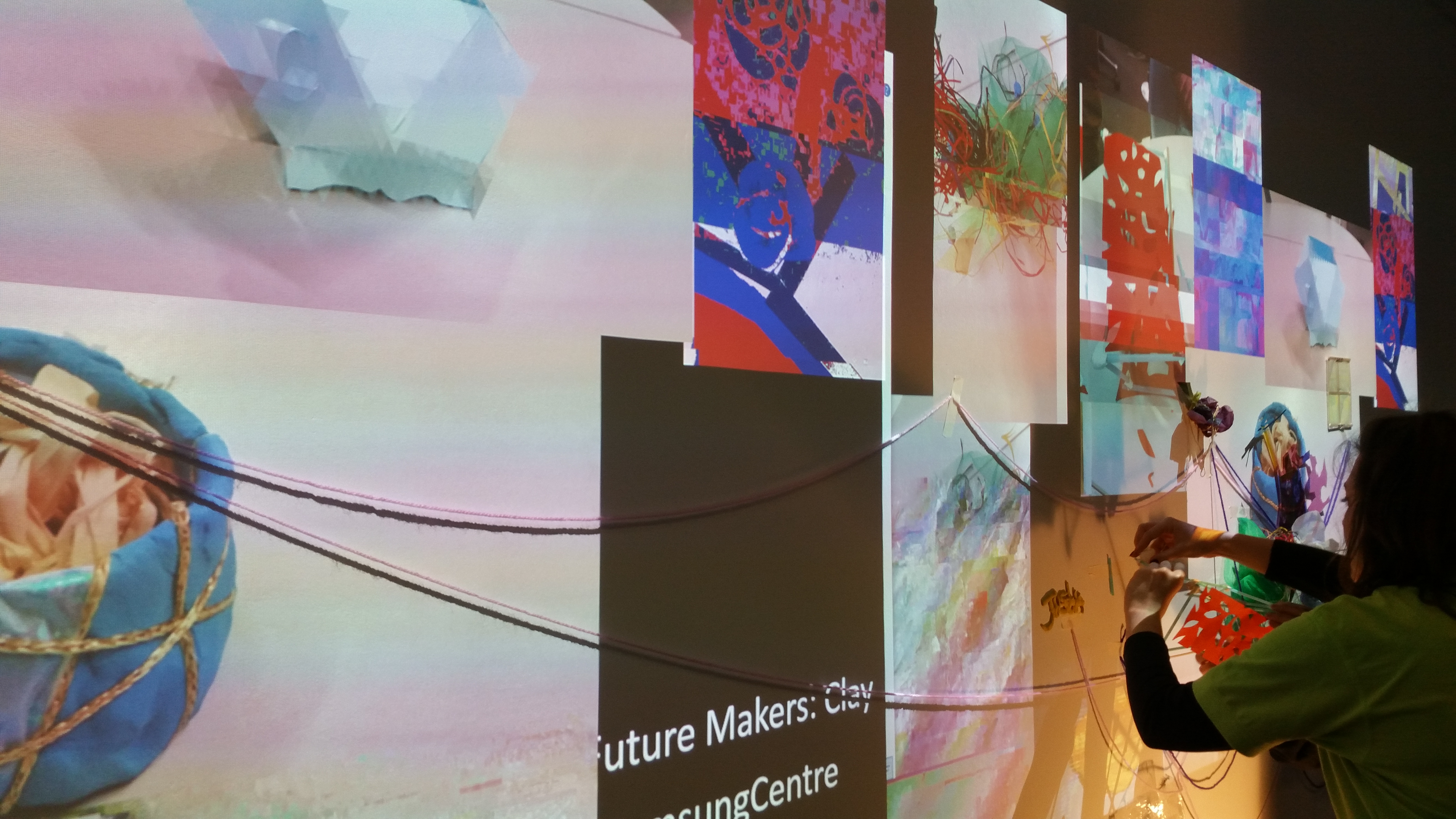
Hacking the Museum
Tate Britain x Tate Modern
British Museum
Wellcome Collection
London, UK
2015-19
Role:
Researcher
Methods:
Participant observation
Ethnographic research
User research
Interviews
Co-design
Tate Britain x Tate Modern
British Museum
Wellcome Collection
London, UK
2015-19
Role:
Researcher
Methods:
Participant observation
Ethnographic research
User research
Interviews
Co-design
From 2015 to 2019, I was researcher-in-residence at 4 public museums in London, gathering data for my Ph.D. thesis ‘Hacking the museum? Collections makerspaces and power at London cultural institutions’. My aim was to understand user experiences of power, access and inclusion at a new generation of spaces for digital innovation that had emerged within London museums. I called these sites ‘collections makerspaces’, or experimental public spaces for digital and material participation around a cultural collection.
During this period, I worked directly with museum staff (from curators and programmers to digital learning teams), collaborators (from artists to facilitators) and publics across the field sites of 4 collections makerspaces in London: Samsung Digital Discovery Centre at the British Museum; The Reading Room at Wellcome Collection; Taylor Digital Studio at TATE Britain, and Tate Exchange at TATE Modern. My data collection included: 255 hours of participant observation, 67 conversations with site users, 48 expert interviews, 5 focus groups, and 4 design interventions in collaboration with museum staff, from workshops to curated exhibits.
Working with a theoretical framework informed by Michel Foucault, David Harvey and Doreen Massey, I explored how users of collections makerspaces negotiated their relations with cultural institutions through digital participation - encounters which both inhibited, and enabled, institutional systems change. In conclusion, I argued that collections makerspaces provided significant value to the UK cultural sector by offering public institutions the opportunity to experiment with new ways of making, learning and working. These new sociotechnical arrangements, I found, were transforming how museum staff and publics interacted with, and understood, ‘high’ culture - inviting museums to become more accessible and inclusive to a new generation of users.
- Supervisors: Prof Tim Jordan (Sussex); Prof Caroline Bassett (Sussex); Dr. Rebecca Sinker (TATE). Examiners: Prof Nicola Thomas (Exeter); Prof Ben Highmore (Sussex).
- Awards: International scholarship, Sussex Digital Humanities Lab 2015; AoIR student travel scholarship 2017; Santander Mobility Award 2017; School of Media, Film & Music Grant 2018; Ph.D, Media & Cultural Studies, University of Sussex 2019.
During this period, I worked directly with museum staff (from curators and programmers to digital learning teams), collaborators (from artists to facilitators) and publics across the field sites of 4 collections makerspaces in London: Samsung Digital Discovery Centre at the British Museum; The Reading Room at Wellcome Collection; Taylor Digital Studio at TATE Britain, and Tate Exchange at TATE Modern. My data collection included: 255 hours of participant observation, 67 conversations with site users, 48 expert interviews, 5 focus groups, and 4 design interventions in collaboration with museum staff, from workshops to curated exhibits.
Working with a theoretical framework informed by Michel Foucault, David Harvey and Doreen Massey, I explored how users of collections makerspaces negotiated their relations with cultural institutions through digital participation - encounters which both inhibited, and enabled, institutional systems change. In conclusion, I argued that collections makerspaces provided significant value to the UK cultural sector by offering public institutions the opportunity to experiment with new ways of making, learning and working. These new sociotechnical arrangements, I found, were transforming how museum staff and publics interacted with, and understood, ‘high’ culture - inviting museums to become more accessible and inclusive to a new generation of users.
- Supervisors: Prof Tim Jordan (Sussex); Prof Caroline Bassett (Sussex); Dr. Rebecca Sinker (TATE). Examiners: Prof Nicola Thomas (Exeter); Prof Ben Highmore (Sussex).
- Awards: International scholarship, Sussex Digital Humanities Lab 2015; AoIR student travel scholarship 2017; Santander Mobility Award 2017; School of Media, Film & Music Grant 2018; Ph.D, Media & Cultural Studies, University of Sussex 2019.






